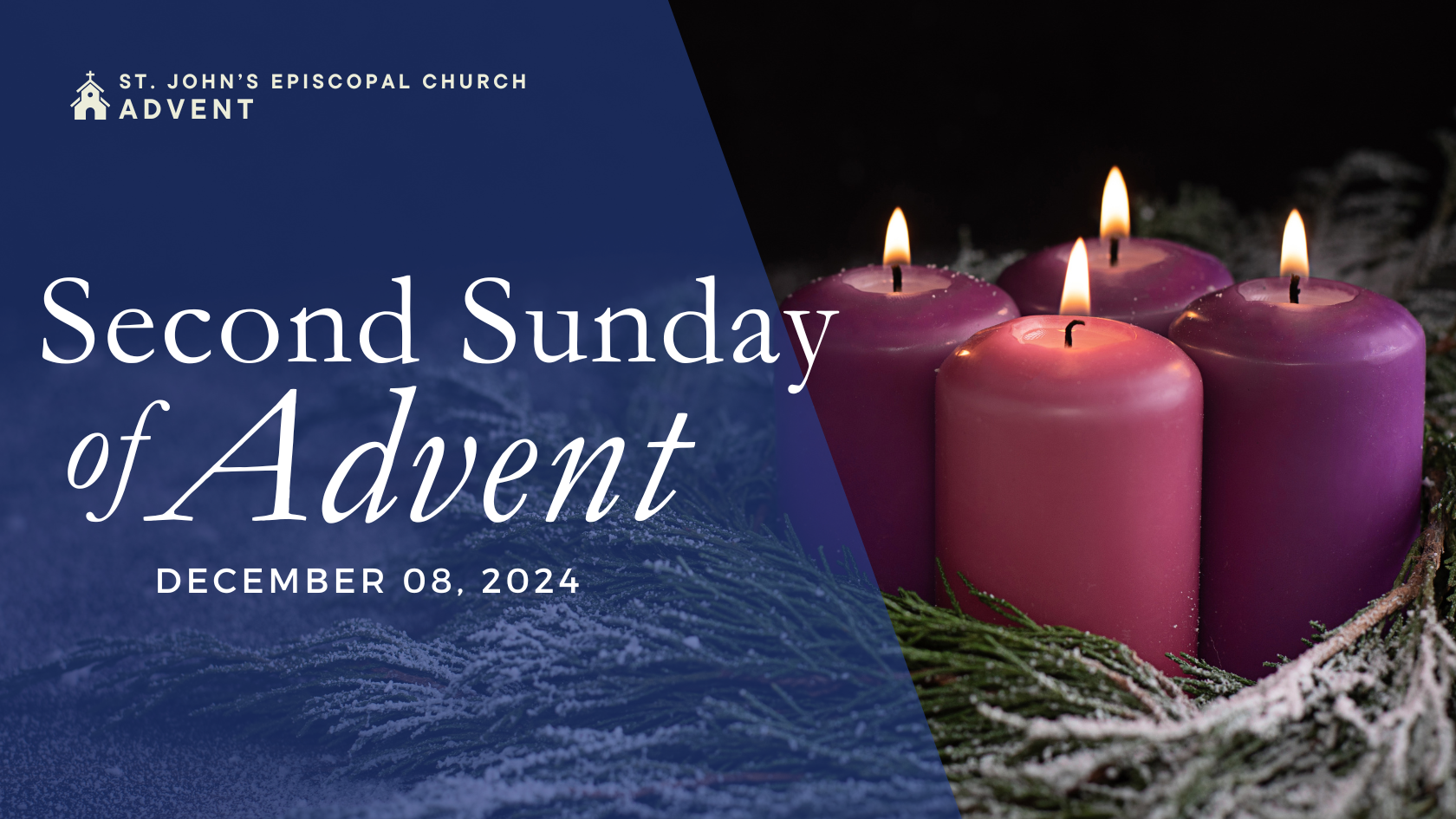Sunday, December 8, 2024
In the tender compassion of our God
the dawn from on high shall break upon us,
To shine on those who dwell in darkness and the shadow of death,
and to guide our feet into the way of peace.Canticle 16, Book of Common Prayer, p. 92-93
This is the Second Sunday of Advent.
We light the second candle on the Advent wreath, the candle of Peace.
The Gospel reading introduces us to John the Baptist and will have more to say about John in the third Sunday as well.
But in our Episcopal lectionary, we also have the option of reading the Song of Zechariah, also known as “The Benedictus,” adapted from Luke 1:68-79.
We hear this canticle most often in Morning Prayer, and I can’t tell you how much I love this canticle. It has been a favorite of mine since I began the habit of Morning Prayer nearly twenty-five years ago. (It is sung or recited every day in my Lutheran tradition of the Daily Office, by the way.)
By way of background, Zechariah, John’s father, uttered these words eight days after the birth of John. It was the first time he had spoken in nine months. He had been rendered mute by the Angel Gabriel as punishment for not believing God’s messenger when told that his wife, Elizabeth, would have a baby, even though she was old and barren. So Zechariah had a lot to say!
It may seem somewhat strange that Zechariah would pay such a heavy price for his disbelief. But he was, after all, a priest. Perhaps God was holding him to a higher standard.
I imagine that Zechariah had been thinking long and hard about what he would say when he was finally able to open his mouth again. He would certainly think long and hard about questioning God or God’s intentions.
But frankly, who could blame Zechariah for his incredulity? What Gabriel was proposing seemed preposterous.
But now, at this time, given the opportunity to speak once more, he never utters one word of skepticism, but only praise for all God’s goodness.
“Blessed be the Lord, the God of Israel,” Zechariah begins, “he has come to his people and set them free.”
He is grateful for being made an instrument of God’s plan of salvation for the world, and especially for the role that his son, John, will play in it – “the prophet of the Most High.”
So, more than merely announcing the birth of his son, John the Baptist, Zechariah’s song is a way to proclaim God’s faithfulness, God’s salvation, and God’s peace.
Again, it is a favorite of mine, and I would enthusiastically encourage you to make it your favorite as well, so that during this season of Advent, as we await the birth of the Savior of the world, you can pray together with Zechariah, “Blessed be the Lord, the God of Israel.”
Let us pray.
Almighty God our heavenly Father, guide the nations of the world into the way of justice and truth, and establish among them that peace which is the fruit of righteousness, that they may become the kingdom of our Lord and Savior Jesus Christ. Amen.
(Book of Common Prayer, p. 816)
+ + +
Artwork: “The Birth of John the Baptist” (1550), Jacopo Tintoretto (1519–1594), currently in the Hermitage, St. Petersburg.
